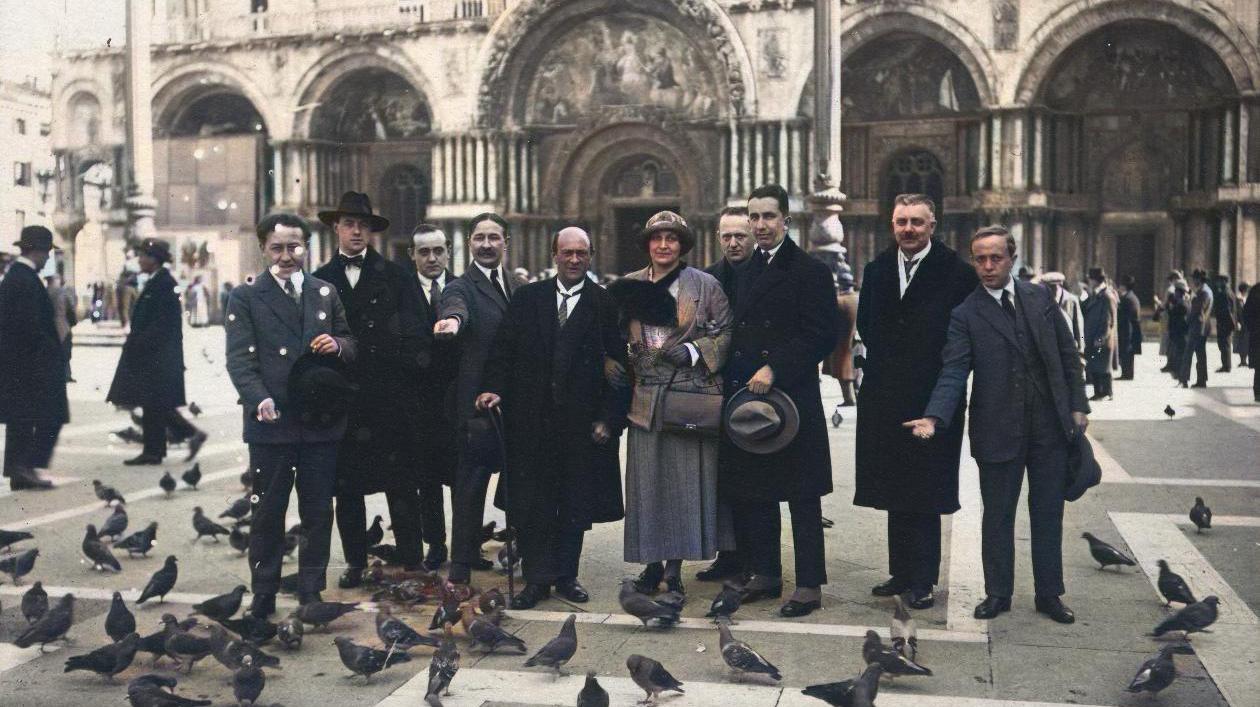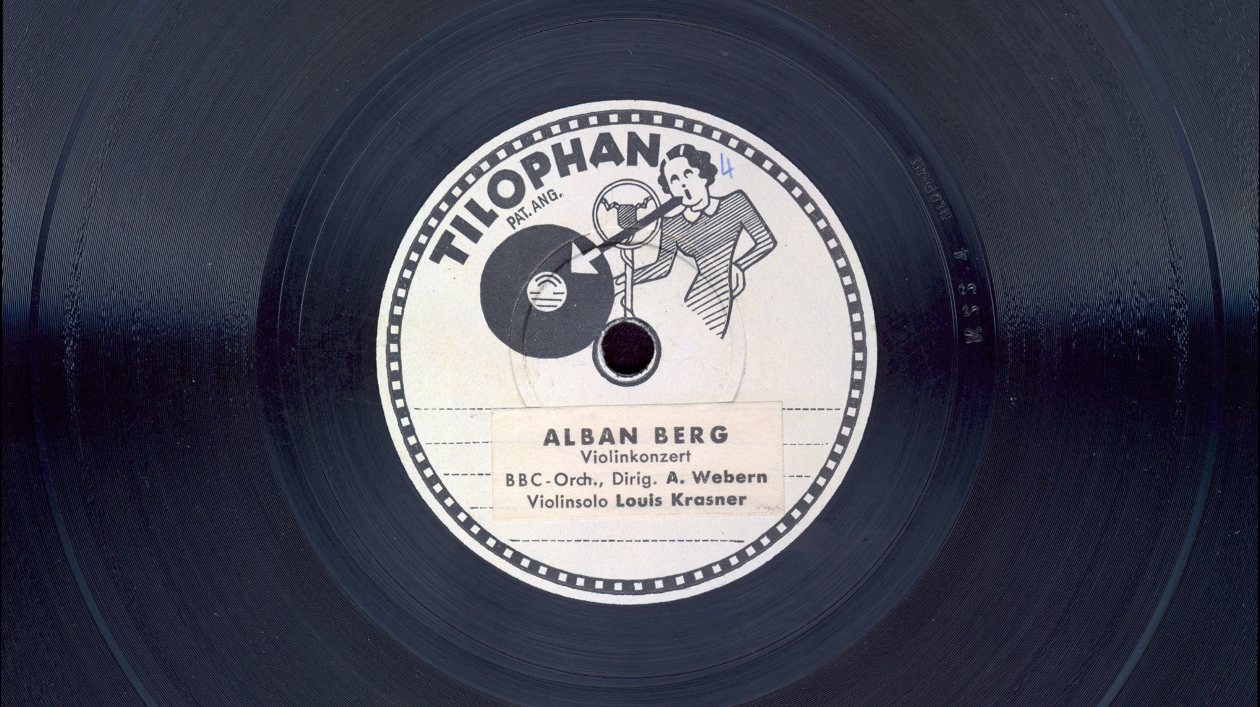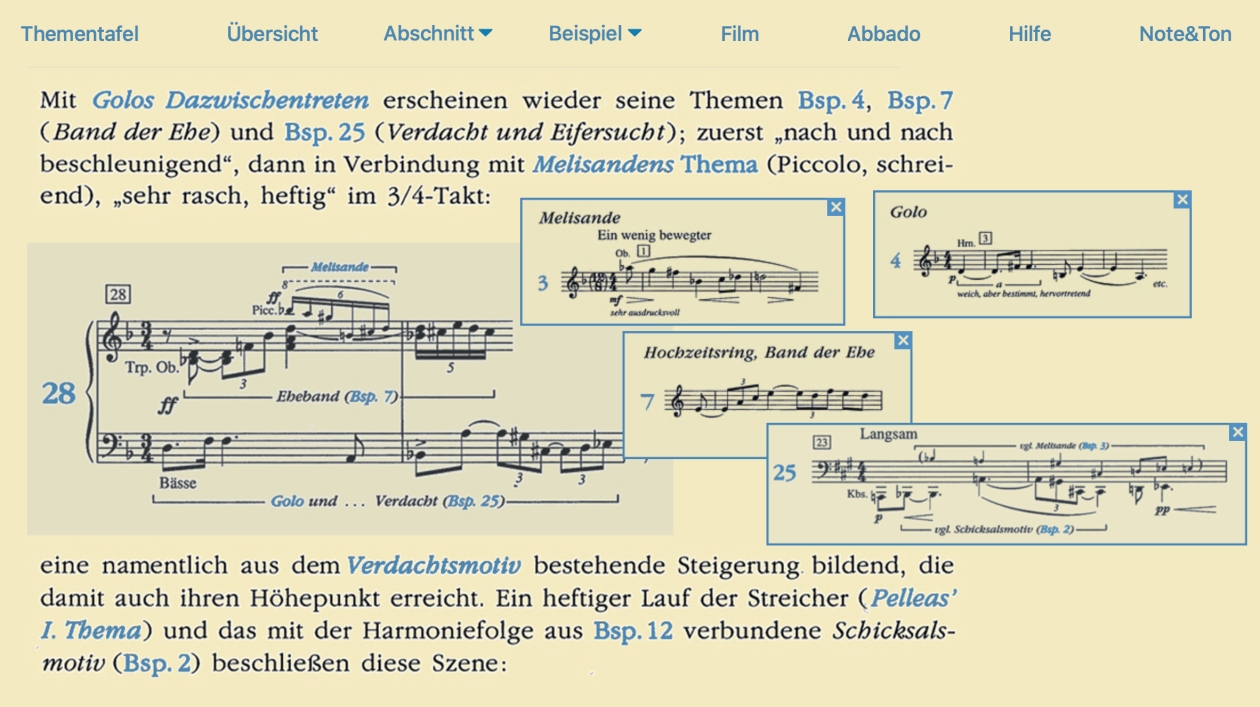Bereichsnavigation
Second Viennese School
The Staatliches Institut für Musikforschung (State Institute for Music Research, SIM) has a research program dedicated to the music of the Second Viennese School. It is concerned largely with publishing the correspondence of the leading members of the school. At the heart of this multivolume series are letters exchanged between Arnold Schönberg, Anton Webern and Alban Berg. These are supplemented by the correspondence of Alexander Zemlinsky and that of the school’s leading interpreters, Edward Steuermann and Rudolf Kolisch.

The Second Viennese School developed its own theory of musical performance, a fact given due consideration by the Archive of Concert Life project. The associated subproject devoted to the Viennese School aims to use the source documents concerning its performance theory to demonstrate how written documentation regarding performance practice and musical interpretation can be gathered in digital form and put online, where it can be searched, annotated and linked to using modern techniques of knowledge organization.
In the field of discology, sound recordings featuring Viennese School musicians make up one of the main focus areas for collections at the institute. The Musicological Documentation department at the SIM is breaking new ground editorially with its publication of historical and critical editions of audio documents. The pilot project Audio Documents of the Viennese School is drawing up guidelines for research on historical sources, developing documentation standards and devising sustainable archival techniques and presentation formats.

The practice of analyzing music played an important role for Schönberg and his students. One of these students, Alban Berg, published a number of extensive analyses of important works by Schönberg, including Gurre Lieder, Pelleas und Melisande and Schönberg’s first Kammersymphonie. SIM has created a multimedia version of Berg’s Pelleas analysis called Pelleas interaktiv, which makes it possible to conduct a musical exploration of Schönberg’s work online at any depth desired.

The attention paid to the music of the Viennese School at the Staatliches Institut für Musikforschung has echoes elsewhere in Berlin, examples being the Complete Edition of the Musical Works of Arnold Schönberg and the Archives of the Akademie der Künste, where instructional materials from the composer are held. From 1925 until he was forced to emigrate in 1933, Schönberg was a professor at the Preussische Akademie der Künste (Prussian Academy of Arts), where he taught a master class in composition.

